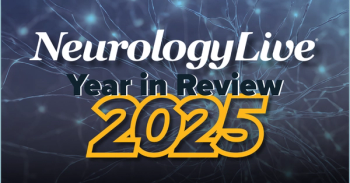
As part of NeurologyLive®'s Year in Review, take a look at some of the top ongoing clinical trials in Parkinson disease that may impact care.

As part of NeurologyLive®'s Year in Review, take a look at some of the top ongoing clinical trials in Parkinson disease that may impact care.

Take 5 minutes to catch up on NeurologyLive®'s highlights from the week ending January 2, 2026.

As part of NeurologyLive®'s Year in Review, take a look at some of the top ongoing clinical trials in Alzheimer disease and dementia that may impact care.

Explore anticipated FDA decisions on groundbreaking neurology drugs in 2026, shaping treatment options for various neurologic conditions.
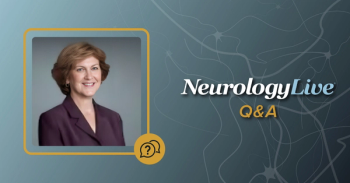
Margaret Rice, PhD, a professor in the Departments of Neurosurgery and Neuroscience at NYU Grossman School of Medicine, provided answers on recently published preclinical research relating aerobic exercise to dopamine release and coordination in PD.

As part of NeurologyLive®'s Year in Review, take a look at our top expert interviews on the latest advances and use of artificial intelligence in neurology care.

At ECTRIMS 2025, the William S. and Lois Stiles Edgerly Professor of Neurology at Yale School of Medicine discussed evolving insights into the disease pathogenesis of multiple sclerosis.

As part of NeurologyLive®'s Year in Review 2025, we've compiled some of the top trending migraine trials.

As part of NeurologyLive®'s Year in Review, take a look at our top collaborative interviews with the Strategic Alliance Partnership program in 2025.

These were the most impactful FDA approval stories that were part of our coverage in 2025, brought to you as part of NeurologyLive's Year in Review.

NeurologyLive® provided in-depth coverage of conferences in 2025, highlighting advancements in diagnostics, treatments, and multidisciplinary care across multiple neurological conditions.

Here's some of what is coming soon to NeurologyLive® this week.

Avadel's REVITALYZ trial for Lumryz in idiopathic hypersomnia shows promise, potentially offering a new treatment option for this underserved condition.

Test your neurology knowledge with NeurologyLive®'s weekly quiz series, featuring questions on a variety of clinical and historical neurology topics. This week's topic is on RBD as a prodromal marker for synucleinopathies!

In this Neuropathways piece, Kevin Chang, PharmD, explores the complexities of remyelination in multiple sclerosis and the potential of Wnt/β-catenin signaling as a therapeutic target.

Apazunersen, an investigational intrathecal therapy, is being evaluated in the phase 3 Aspire trial for pediatric Angelman syndrome, with study completion anticipated in the second half of 2026.
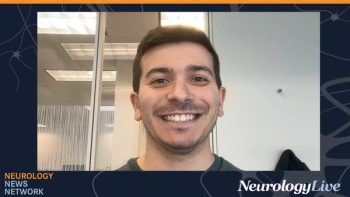
Neurology News Network for the week ending December 27, 2025. [WATCH TIME: 4 minutes]

Take 5 minutes to catch up on NeurologyLive®'s highlights from the week ending December 26, 2025.

As part of NeurologyLive®'s Year in Review 2025, we've compiled the most-listened episodes this year of our biweekly podcast, Mind Moments®.

Mind Moments®, a podcast from NeurologyLive®, brings you an exclusive interview with Lindsay McCullough, MD. [LISTEN TIME: 14 minutes]

A look back at clinician-led features from 2025 that examine the questions, data, and decisions shaping neurologic care.
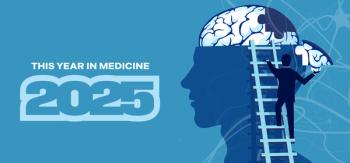
A trio of neurology experts discussed the clinical application of the 2025 updated multiple sclerosis diagnostic criteria, including imaging and biomarker tools, to support patient care.

As part of NeurologyLive®'s Year in Review, take a look at our top expert interviews regarding multiple sclerosis in 2025.

The director of the Pediatric Epilepsy Center at UCSF reviewed recently presented interim phase 1/2 data for ETX101, a one-time AAV9 gene regulation therapy aiming to increase SCN1A expression in inhibitory interneurons in Dravet syndrome.

As part of NeurologyLive®'s Year in Review, we've compiled some notable trials that began in 2025.

Explore the transformative buzzwords in neurology for 2025, highlighting advancements in AI, gene therapy, personalized treatment, and neuroplasticity.

Explore the evolving landscape of developmental and epileptic encephalopathies in adults, highlighting precision therapies and the need for accurate diagnoses.
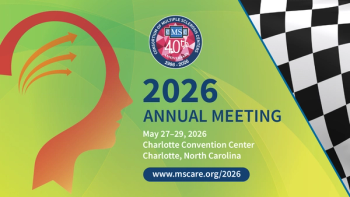
Kathleen Costello, CRNP, MSCN, offers highlights of the upcoming 2026 CMSC Annual Meeting, which will celebrate 40 years of progress and innovation in MS care.

Gain Therapeutics advances Parkinson's treatment with GT 2287, showcasing promising safety and tolerability in ongoing trials. Discover the latest findings.

Continuem's PIPE-307 trial for relapsing-remitting multiple sclerosis failed to meet primary goals, yet the company remains committed to exploring future therapies.